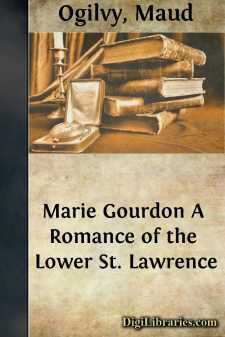Categories
- Antiques & Collectibles 13
- Architecture 36
- Art 48
- Bibles 22
- Biography & Autobiography 813
- Body, Mind & Spirit 142
- Business & Economics 28
- Children's Books 15
- Children's Fiction 12
- Computers 4
- Cooking 94
- Crafts & Hobbies 4
- Drama 346
- Education 46
- Family & Relationships 57
- Fiction 11828
- Games 19
- Gardening 17
- Health & Fitness 34
- History 1377
- House & Home 1
- Humor 147
- Juvenile Fiction 1873
- Juvenile Nonfiction 202
- Language Arts & Disciplines 88
- Law 16
- Literary Collections 686
- Literary Criticism 179
- Mathematics 13
- Medical 41
- Music 40
- Nature 179
- Non-Classifiable 1768
- Performing Arts 7
- Periodicals 1453
- Philosophy 64
- Photography 2
- Poetry 896
- Political Science 203
- Psychology 42
- Reference 154
- Religion 513
- Science 126
- Self-Help 84
- Social Science 81
- Sports & Recreation 34
- Study Aids 3
- Technology & Engineering 59
- Transportation 23
- Travel 463
- True Crime 29
Marie Gourdon A Romance of the Lower St. Lawrence
by: Maud Ogilvy
Description:
Excerpt
"Wae's me for Prince Chairlie."Old Scotch Song.It was a dark gloomy night in the year 1745. Huge clouds hung in heavy masses over the sky, ready to discharge their heavy burden at any moment. The thunder echoed and re-echoed with deafening crashes, as if the whole artillery of heaven were arrayed in mighty warfare, and shook even the giant crag on which the castle of Dunmorton was situated.
Fierce indeed was the tempest without, but within the castle raged one still fiercer—that of two strong natures fighting a bitter battle. So loud were their voices raised in altercation that the storm without was scarce heeded.
Dunmorton was a fine old castle of the Norman type, with a large moat surrounding it, and having all the characteristics appertaining to the feudal state. To the rear of the moat, behind the castle, stretched broad lands, on which were scattered many cottages, whose occupants had paid feu-duty to the Lords of Dunmorton for many a generation. To the left of these cottages stretched a large pinewood, with thickly grown underbrush, where, in blissful ignorance of their coming fate, luxuriated golden pheasants and many a fat brace of partridge. That night, the depths of the pine forest were shaken, for the storm was worse than usual even for the east coast of Scotland, where storms are so frequent.
Crossing the drawbridge, and coming to the low Norman arched doorway, one entered at once into the hall. This was a lofty room some twelve feet wide. At one end of it was a broad fire-place, where huge resinous pine logs sent up an odor most grateful to the senses and emitted a pleasant, fitful blaze, lighting up, ever and anon, the faces of The McAllister and his second son Ivan.
On the walls hung huge antlers and heads of deer, the trophies of many a hard day's sport, for they had been a race of sportsmen for generations, these McAllisters, a hardy, strong, self-reliant people, like their own harsh mountain breezes.
The two representatives of the race now quarrelling in the hall were both fine looking men, though of somewhat different types. The McAllister was a tall old man over six feet in height, well and strongly built. His hair was iron-grey, his eyes blue and piercing, his nose rather inclined to the Roman type, his mouth large and determined, and his chin firm, square and somewhat obstinate. His eyebrows were very thick and bushy, thus lending to his face a sinister and rather forbidding expression. He wore a rough home-spun shooting suit, and had folded round his shoulders a tartan of the McAllister plaid, which from time to time he pushed from him with a hasty impatient gesture, as he addressed his son in angry, menacing tones,—
"An' I tell ye, Ivan, though ye be my son, never mair shall I call ye so, if ye join the rabble that young scamp has got together, and never mair shall ye darken the doors of Dunmorton if ye gae wi' him. Noo choose between that young pretender and your ain people."
"Father," said Ivan, "he is not a pretender, of that I am convinced, and you will be soon....


